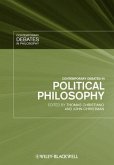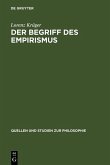John Locke (1632-1704) has a good claim to the title of the greatest ever English philosopher, and was a founding father of both the empiricist tradition in philosophy and the liberal tradition in politics. This new book provides an accessible introduction to Locke's thought. Although its primary focus is on the Essay Concerning Human Understanding, it also discusses the Two Treatises on Government, the Essay on Toleration, and the Reasonableness of Christianity, and draws on materials from Locke's correspondence and notebooks to shed light on the contexts of these major works. Locke's arguments for his central claims are subjected to close scrutiny, and his replies to his main critics evaluated.
A.J. Pyle takes as his guiding theme Locke's own maxim, that God has given humans enough knowledge for our needs. The philosopher who emerges from these pages is a strikingly modern figure, anti-metaphysical in his attitude both to science and to theology, anti-authoritarian in his politics, and cautiously optimistic about human progress. Locke is indeed one of the founding figures of the Enlightenment, but for Pyle the Lockean Enlightenment is a modest affair of slow and hesitant groping towards the light.
As well as serving as an introduction to Locke for students, the book also helps to correct a number of significant errors and misunderstandings that have marred our understanding of Locke and will spark discussion and debate amongst scholars of his work.
A.J. Pyle takes as his guiding theme Locke's own maxim, that God has given humans enough knowledge for our needs. The philosopher who emerges from these pages is a strikingly modern figure, anti-metaphysical in his attitude both to science and to theology, anti-authoritarian in his politics, and cautiously optimistic about human progress. Locke is indeed one of the founding figures of the Enlightenment, but for Pyle the Lockean Enlightenment is a modest affair of slow and hesitant groping towards the light.
As well as serving as an introduction to Locke for students, the book also helps to correct a number of significant errors and misunderstandings that have marred our understanding of Locke and will spark discussion and debate amongst scholars of his work.
Dieser Download kann aus rechtlichen Gründen nur mit Rechnungsadresse in D ausgeliefert werden.
"This book is an excellent commentary on the major areas of Locke's philosophy. It is informed with a deep respect for the complexity of Locke's thought and a wide reading in the sophisticated contemporary literature, both on Locke and more widely." -- John Rogers, Keele University
"A superb introduction to the philosophy of John Locke. It is balanced and insightful in its interpretations and displays a keen grasp of the whole sweep of Locke's philosophy. While there is much here for the scholar, this book is just the right length and pitch for an undergraduate student text." -- Peter Anstey, University of Otago, New Zealand
"A. J. Pyle has written an excellent book on the philosophy of John Locke. It is thorough, scholarly, historically informed, lucidly written, provocative and engaging. It leads the reader through thorny and conceptually difficult material with an effortless fluidity that neither sacrifices precision nor loses the reader in minutiae. This volume should be of interest to undergraduates, graduate students and non-specialists who are interested in Locke and his contribution to Western philosophy. I highly recommend it." -- Jan-Erik Jones, Southern Virginia University
"A superb introduction to the philosophy of John Locke. It is balanced and insightful in its interpretations and displays a keen grasp of the whole sweep of Locke's philosophy. While there is much here for the scholar, this book is just the right length and pitch for an undergraduate student text." -- Peter Anstey, University of Otago, New Zealand
"A. J. Pyle has written an excellent book on the philosophy of John Locke. It is thorough, scholarly, historically informed, lucidly written, provocative and engaging. It leads the reader through thorny and conceptually difficult material with an effortless fluidity that neither sacrifices precision nor loses the reader in minutiae. This volume should be of interest to undergraduates, graduate students and non-specialists who are interested in Locke and his contribution to Western philosophy. I highly recommend it." -- Jan-Erik Jones, Southern Virginia University









